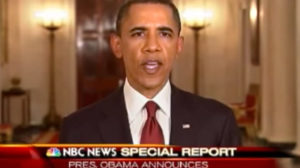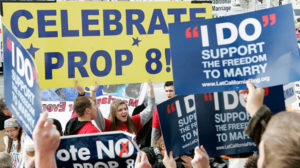With all the upheaval and social disruptions caused by the current COVID-19 pandemic, it will not take long for legal issues to rise to the top as well. We offer some very preliminary answers.
The Law of Coronavirus


With all the upheaval and social disruptions caused by the current COVID-19 pandemic, it will not take long for legal issues to rise to the top as well. We offer some very preliminary answers.

A five-decade consensus on the objectives of antitrust law is under threat today from the extraordinarily divisive politics of contemporary America. It took a long time and sordid episodes to get the politics out of antitrust—it would be a shame to go backwards and politicize competition policy again.

Former music and film producer Jonathan Taplin is way out of his element, merging two distinct issues into a superficial “#resistance” meme that contradicts the central tenets of U.S. antitrust law.

The year 2016 was momentous in politics and celebrity deaths, but also in the field of technology law. Here’s our wrap-up of the five most significant tech cases that hit the judiciary in the past year.

When Google’s proposed acquisition of Motorola Mobility was announced in 2011, the business press focused mainly on the extension of Google’s core business from Internet search into hardware. But from a legal perspective, the treatment given the deal by competition authorities in the United States, the EU and China raises intriguing questions about the scope and objectives of merger policy in emerging technology markets.

Although the AT&T/T-Mobile deal has both horizontal and vertical elements, most media and analyst discussion to date has focused on direct competition for wireless subscribers, the classic horizontal concentration question. Regardless of the result there, observers can expect behavioral injunctions, whether by DOJ consent decree or FCC “conditions” to approval, addressing the deal’s vertical factors.

Sunday’s special ops killing in Pakistan of Al Qaeda leader Osama bin Laden — mastermind, symbol and financial underwriter of the Al Qaeda network — produced real feelings of unity in our divided and atomistic culture, aided by social media.

The outcry over federal judge Vaughn Walker’s decision overturning California’s Proposition 8 — which declared same-sex marriages unlawful — is hardly atypical where the Constitution is concerned. Why should a single judge, or nine (Supreme Court) judges, have the power to override the legitimate majority vote of citizens in a democracy?

It is completely beyond me why the Obama Administration and congressional Democrats could be this obtuse. No one should want — and I doubt any American really does support — the government standardizing serving sizes and recipe compositions, even on health grounds.

Yesterday a federal district judge ruled the “National Day of Prayer” unconstitutional. But observing such a commemorative occasion involved no compulsion, discrimination or penalty on or against any observer of any religious doctrine. So what’s the rub?